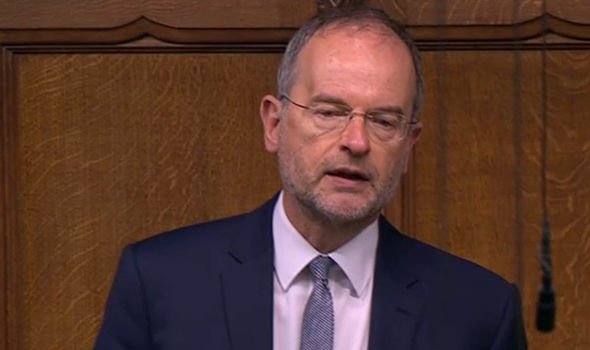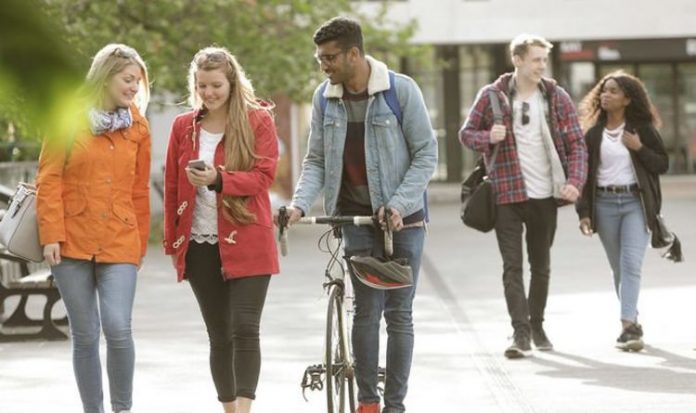
Students are suffering due to no face to face lectures (Image: Getty)
St Andrews University, where Prince William and Kate Middleton met, told students this week the majority of courses would remain online for the rest of this semester, running until the end of May, when the academic year ends for most students. It follows similar announcements from the London School of Economics and Edinburgh University.
This is despite the Government’s plan for universities to start welcoming students back on to campus from March 8.
Vice-chancellor Sally Mapstone said that St Andrews was taking “the difficult decision” to provide certainty as early as possible.
She said: “It is prudent to anticipate that significant restrictions on travel and other aspects of public life will remain in place in Scotland through the spring.
‘Even if some of those are eased as Covid infections fall, we do not believe it will be to a degree sufficient to allow us to bring large numbers of students back to St Andrews and provide comprehensive in-person education.”
Postgraduate student at the Scottish university Marie Mannes, 23, felt “disappointed” by the announcement as she has spent most of the year alone in her “tiny room”.
She said: “Though I’m happy that the university has provided us with more stability for the next few months I’m quite sad that I wasn’t able to properly experience studying at St Andrews, in total I have only been there for a max of two months, and most of that time was spent inside my tiny room by myself, hopefully I’m able to return in the summer to get my stuff and at least experience St Andrews a tiny bit more”.
Dan Marshall, the president of St Andrews University Students’ Association, said students were “obviously disappointed” by the delay of a mass return to campus.
He added: “Students are incredibly grateful for the way staff at universities have worked tirelessly to support students and adapt to new modes of teaching this year, both online and on campus.

Paul Blomfield MP (Image: House of Commons)
“Unfortunately, many don’t think the same can be said for Government which has failed to consider the experiences of students during the pandemic and support both them and their institutions.”
Sheffield Central Labour MP Paul Blomfield, above, who leads a cross-party group of MPs and peers looking into student support, said the “mismanagement” of the winter wave of COVID-19 has spread restrictions further into 2021 than expected.
He added: “We continue to feel the uncertainty that goes with the continuing high case numbers and deaths. Universities need to plan for summer assessments in order to grant the degrees that students need, but without knowing future COVID-19 restrictions, it’s understandable that they’ve decided to put in place online provision.”
MP for Bath Wera Hobhouse called it “vital” that the Government takes a step back and commissions a review of students during this academic year.
She said: “Whilst some schools and courses can switch seamlessly to virtual teaching many more simply do not have this option. This is especially true for those who are studying sciences, technology, arts, or engineering. Switching to virtual teaching is therefore not the solution for all pupils and the Government must urgently conduct a review.”
A spokesman for Universities UK said: “The Government supports our view that face-to-face teaching is important for the mental, emotional and educational wellbeing of students, and we know that students are keen to be able to access facilities and benefit from the wider university experience, regardless of which subject they study.”
Comment by Paul Blomfield, MP
With Ministers arguing about whether or not we’ll be able to take holidays either in the UK or abroad this summer, it’s not surprising that some universities have decided to tell students that they’ll finish the academic year online.
The mismanagement of the winter wave of the coronavirus has meant that restrictions have spread further into 2021 than expected, and we continue to feel the uncertainty that goes with the continuing high case numbers and deaths.
Universities need to plan for summer assessments in order to grant the degrees that students need, but without knowing future COVID-19 restrictions, it’s understandable that they’ve decided to put in place online provision.
But it will be hugely disappointing for students, many of whose studies will soon have been disrupted for more than a year. Despite the best efforts of universities and their staff, there’s some learning that cannot be done online – practical experiences in labs, studios and on placements, group work and trips.
That’s why universities should look ahead to how they can make up for these lost experiences with enriched programmes of these kinds of learning in the future – and they must be supported by Government to deliver.
The All-Party Parliamentary Group for Students, which I chair, recently produced a report that recommended that Government invest in a substantial Covid Student Learning Remediation Fund, to provide universities with the financial support necessary to ensure that no student is left behind.
With online learning set to continue, it’s more important than ever that these plans are put in place, so that as soon as is practicable, students can experience the education they deserve, and make up for lost time.
• Paul Blomfield, Sheffield Central Labour MP, leads a cross-party group of MPs and peers looking into student support.







